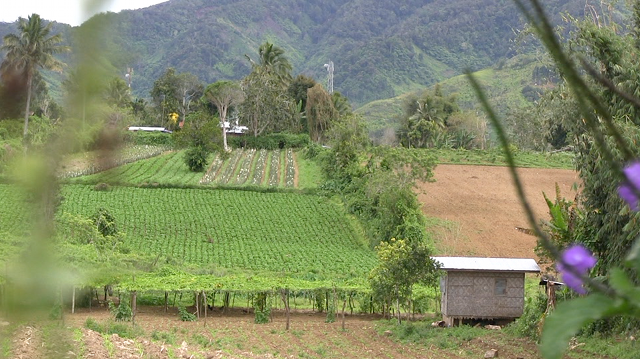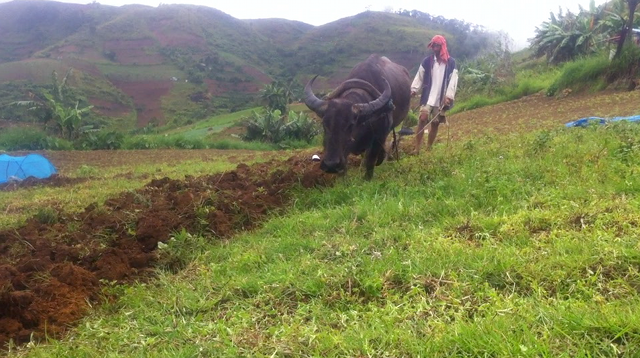SUMMARY
This is AI generated summarization, which may have errors. For context, always refer to the full article.

MANILA, Philippines – Despite disappointing agricultural growth at the start of the year, the sector is expected to rebound in the coming quarters, said agriculture policy expert and University of Asia and the Pacific professor Dr Rolando Dy.
He expects the sector to grow 3 times as fast during the rest of the year.
“I see recovery to 2.5% to 3% growth for the year. This means, growth will have to be 3% for the next 3 quarters to attain 2.5% for the full year,” he said.
In the first quarter, “Agriculture and Forestry slowed down to 1% from 4.4% last year (in the same period), pulled down by declines posted by sugarcane, palay, mango and cassava,” said the National Statistical Coordination Board (NSCB) in their first quarter release.
Dy explained that while there were no natural disasters, there were “occasional rains in the first quarter.” He said that led to the 6% contraction in mangoes, which need “dry weather for flowers and to bloom.” The rains also hampered harvesting of sugarcane, specifically in the provinces of Bukidnon, Davao del Sur and Lanao del Sur, according to the NSCB release.
The agriculture policy expert also cited the effect of price changes, which varied independent of weather. For example, he said “produce prices have gone down,” which was partially to blame for the 6.5% drop in sugarcane, which grew 26.6% growth in the first quarter of 2011.
Meanwhile he pointed to “higher gas costs for boats, the moratorium in fishing in Sulu Sea and also in Southwest Pacific (as well as) limited access for fishers in Celebes Sea, Indonesia,” as the culprits for the drops in acquaculture and fishery. The subsector contracted by 3.8% in the 1st quarter from the same period last year according to NSCB data.
Dy cited the following drops: commercial fishing -9.2%, municipal fishing – 3.1%, and aquaculture – 2.5%.
Fearless forecast for 2012
Still Dy expects agriculture to make up for the slow growth in the first quarter with faster growth throughout the rest of the year.
“I see recoveries in rice, high growth for coconut… (and) for sugar and fisheries not to go down further,” said Dy.
He said coconuts, which already rebounded 5.6% from a decline of 6.1% last year, would see more high growth. Coconut trees likely recovered from the El Niño phenomenon of 2010 said the NSCB. In addition, the agency said, “buko juice” has been gaining popularity as a health drink locally and abroad leading to an increased harvesting of young coconuts.
Dy pointed out that “crops, livestock and poultry did reasonably well at 2.1%,” which means they could be expected to keep contributing to growth. Meanwhile, he forecasts that fisheries and sugar wouldn’t contract further.

“Agriculture is a vital cog of the economy,” he said. The sector typically makes up 1/5 of the economy. But including the full agribusiness (agriculture, agro-industry and agro-services), Dy says, may account for over 40% of the Philippine economy.
“Agriculture labor force is about 35% of total but agribusiness labor force could be closer to over 60%,” he said.
Government should do more
“Since agriculture is a major job creator, and 70% of the poor are in rural areas, government must do more,” said the well-regarded expert.
He said government could make two improvements. His first suggestion was putting a lid on smuggling, which he said, is “rampant from meat to palm oil” and “discourages local investors.” Second, he said, “The government must address the absorptive capacity of the development agencies. Money is there but spending it according to targets can be a problem.”
Given the broad impact of agriculture in a developing country like the Philippines, it is not only crucial to achieve short-term gains but also to sow the seeds for good growth past 2012. – Rappler.com
Add a comment
How does this make you feel?
There are no comments yet. Add your comment to start the conversation.